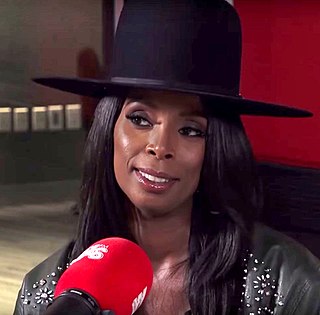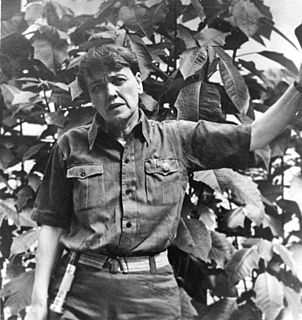A Quote by Harriet Lerner
Men are often (though not always) the pursuers for sex, just like women are often (though not always) the pursuers for conversation.
Related Quotes
I've never been one of those who is attracted to straight men. Like I always said, 'you're straight, so there's no point' and I have friends who are pursuers of the heterosexual men. They see it as conquests, which I think is a different thing and a more narcissistic thing. And not necessarily a healthy thing.
Though women may appear equal in some ways, and though we definitely have accomplished a lot, the fact is one in one women will still experience sexual violence at some point in their lives; a mere 17 percent of the U.S. Senate is female; women still only make 77 cents for every man's dollar - and that's not even taking into consideration global issues like sex trafficking or honor killings. We still need feminism, it's just not as easy for people - especially people in an incredibly privileged country like America - to always see that.
It is important to note that research has shown that men who have abusive mothers do not tend to develop especially negative attitudes toward females, but men who have abusive fathers do; the disrespect that abusive men show their female partners and their daughters is often absorbed by their sons.
So while a small number of abusive men do hate women, the great majority exhibit a more subtle-though often quite pervasive-sense of superiority or contempt toward females, and some don't show any obvious signs of problems with women at all until they are in a serious relationship.
Women have always been the primary victims of war. Women lose their husbands, their fathers, their sons in combat. Women often have to flee from the only homes they have ever known. Women are often the refugees from conflict and sometimes, more frequently in today's warfare, victims. Women are often left with the responsibility, alone, of raising the children.
Death is too much for men to bear, whereas women, who are practiced in bearing the deaths of men before their own and who are alsopracticed in bearing life, take death almost in stride. They go to meet death--that is, they attempt suicide--twice as often as men, though men are more "successful" because they use surer weapons, like guns.
In men's sports, people criticize coaches and managers all the time, call out teammates, too, and it's not that huge of a deal. Often, the guy speaking out is even lauded for having the courage to tell the truth. When it happens in women's sports, though, it always seems to be viewed as a nasty, claws-out cat fight.







































